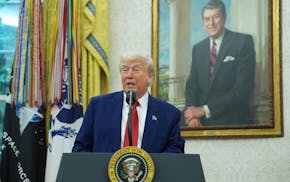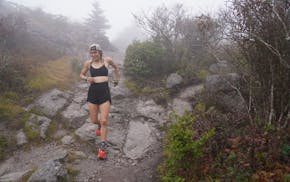A Minnesota task force created to advise state lawmakers on policy issues surrounding psychedelic medicine released a report this week recommending the decriminalization of psilocybin-containing mushrooms.
Along with decriminalizing the possession and personal use of what are known as "magic" mushrooms, the task force also recommends creation of a state-regulated clinical program for mushrooms to treat mental health disorders and funding for more research into the health benefits of psilocybin, MDMA (also known as Ecstasy) and LSD.
The 23-member Psychedelic Medicine Task Force released the 191-page report on New Year's Day, with a two-thirds majority approving the three recommendations. Members included legislators, state agency heads, representatives of the Dakota and Ojibwe tribes, veterans with treatment-resistant mental health conditions, and health care professionals with expertise in psychology, substance abuse and integrative medicine.
Some takeaways from the report:
Greater access to mushrooms, but not LSD and MDMA
While mushrooms were recommended for decriminalization and clinical trials, the task force did not recommend the same for MDMA and LSD. The reason comes down to the fact that mushrooms are a naturally derived medicine while the other two substances are synthetic, said Jessica Nielson, a University of Minnesota psychiatry professor who chaired the task force.
"The overall sense was that something you can grow would be inherently safer and easier to work with than something that needs to be synthesized in a lab," Nielson said in a statement to the Star Tribune.
That way of thinking is reflected in the "decriminalize nature" movement, which pushes for more access to plant- and fungi-derived psychedelics that have been safely used by indigenous cultures for thousands of years across the globe, Neilson said.
Additionally, sourcing MDMA and LSD would be far too complicated and potentially invite more conflicts with the federal government, Nielson said.
"Therefore we prioritized mushrooms because they can easily be grown completely within the state, just as we do for cannabis," she said.
Psychedelics might treat range of disorders
The task force report outlines a variety of potential benefits of decriminalizing mushrooms, MDMA and LSD. All three have received the "breakthrough therapy" designation by the U.S. Food and Drug Administration, which means preliminary clinical evidence indicates they may demonstrate substantial improvement over available therapies.
The report says there is "very promising" evidence from studies that show LSD as a potential treatment for anxiety disorders and MDMA as a post-traumatic stress disorder treatment.
Psilocybin, the psychedelic compound in mushrooms, also was singled out as a potential treatment for depression, anxiety, disordered eating and substance use disorders, among other conditions.
That research is in its early days, Nielson said, but the three substances may provide more benefits than psychotherapy and currently available prescription medications.
"They appear to get at the root cause of why people are suffering, acting like a heat-seeking missile to find that root cause buried deep in the subconscious," Nielson said. "They allow people to access what is driving symptoms and resolve it, rather than dampening down brain activity to make symptoms manageable."
What was not recommended
Four other proposals considered by the task force fell short of reaching two-thirds approval. Of those four, one proposal — creating a regulated, adult-use recreational market for mushrooms — still won approval by 57% of task force members.
The report said the task force's discussions on that proposal centered on lessons learned from synthetic cannabinoids and public health concerns. It also noted that acceptance of such a program from public and government agencies is not as high as it is for cannabis.
The other three proposals that failed to gain approval:
More extensive decriminalization of psilocybin mushrooms, specifically the noncommercial cultivation and sharing of the substance.
Decriminalizing personal use and possession of MDMA, synthetic psilocybin and LSD.
Creating a state-regulated program for the clinical administration of MDMA and LSD.

Golden Valley puts police chief on paid leave

At least 31 Palestinians are killed while heading to a Gaza aid hub, officials and witnesses say

Can Trump fix the national debt? Republican senators, many investors and even Elon Musk have doubts

